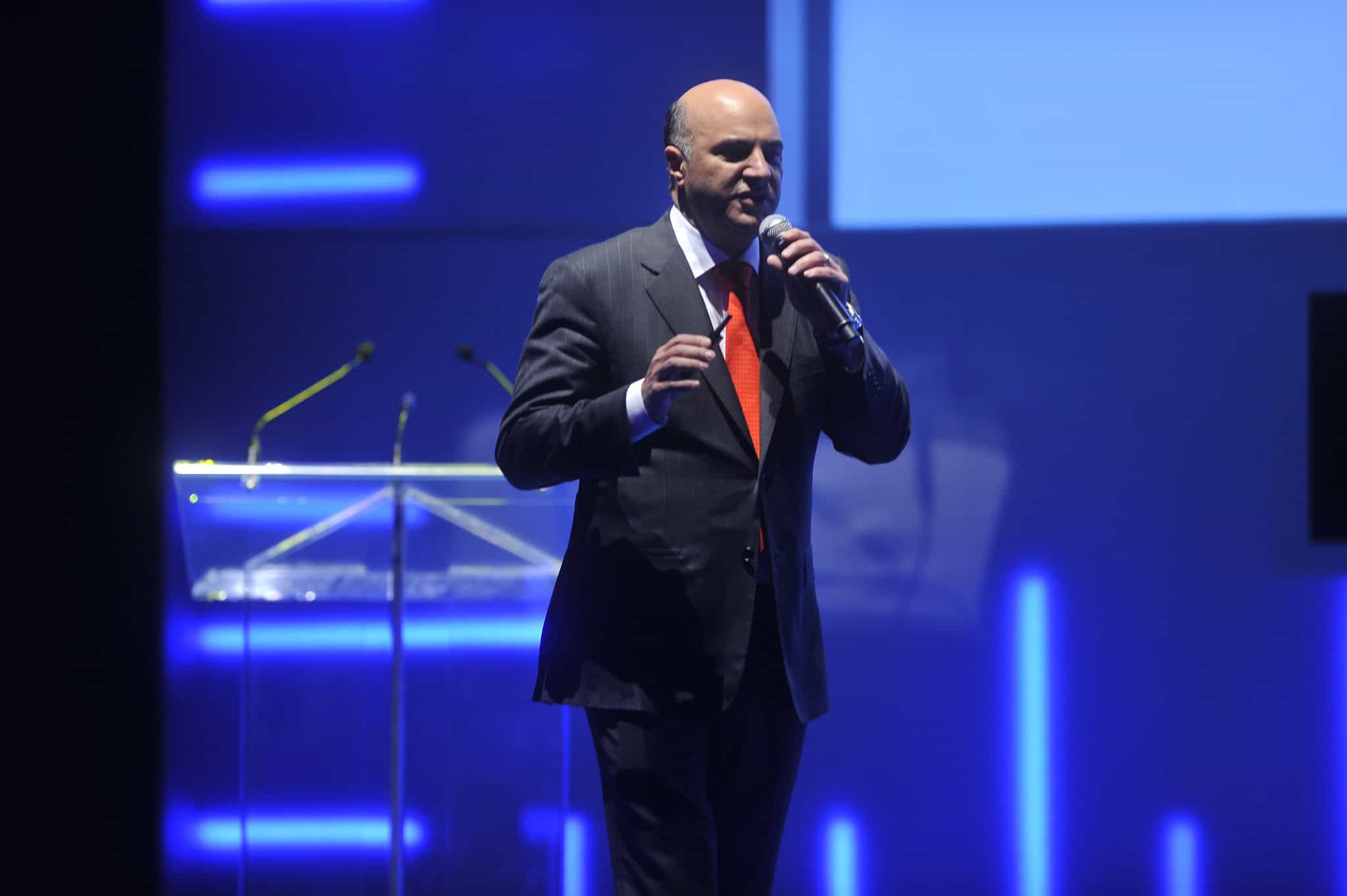Personal Finance
Kevin O'Leary says early retirement is a terrible idea and shares why he'll never stop working

Published:

When Mr. Wonderful speaks, the world should listen. At least, that’s what Kevin O’Leary wants us to think. In this short YouTube clip, he provides a valuable lesson for the FIRE (Financial Independence, Retire Early) fanbase and why this entire movement might not be all it’s cracked up to be.
24/7 Wall St. Key Points
While you don’t necessarily have to agree with Mr. Wonderful in that he never wants to retire, he does make a pretty strong argument for why staying in the workforce, at least in some capacity, can hugely benefit your physical and mental health.
One of the biggest reasons Kevin talks about this topic with some authority is that he’s lived it. After selling his first company at 36, he retired for 3 years and was “bored out of his mind.” Kevin argues that working allows you to be social, interact with others, and even help you live longer.
Kevin’s biggest concern is that not working means missing the stimulation provided by being in a workforce, among your peers, and having this interaction. While he takes his point-of-view to the extreme in that he will work until he dies, his idea that work gives a sense of social togetherness isn’t completely removed from reality.
As someone well-known for his ruthless business tactics and larger-than-life personality on Shark Tank, everything Kevin says in this video makes sense. At least it makes sense for him. The reality of the situation is a little more nuanced, as he might be missing the point of the FIRE movement.
Kevin’s thinking goes a little off the rails because he’s missing the most crucial point of the FIRE movement. The goal of this movement is not necessarily to stop working but to stop required work or the kind of stressful work that keeps you up at night.
People or families that achieve financial independence early on can now do something great with their lives. Hitting a target FIRE number now means someone can work to live and not live to work, which is a huge weight off someone’s shoulders.
According to this video, Kevin is missing this last point, even though he thrives on hard work and wants to work 24 hours daily. The FIRE movement still allows you to do that, and it doesn’t mean you are retiring in the sense that you will never work again. While some people do live a FIRE life and stop working entirely, most followers of this movement are more likely to reduce their workload and instead find something they can do that makes them feel more fulfilled.
If Kevin thinks that people who achieve financial independence early on are just lounging around watching TV all day, he’s very much mistaken.
According to the World Health Organization, work can improve mental health. However, this depends entirely on the working environment, which Kevin misses on the larger front. Kevin is correct in that work can provide mental health benefits, but he needs to stretch his thinking and consider that it has to be the right kind of work where stress isn’t an everyday thing. Deadlines, horrible bosses, and difficult colleagues can all cause far more stress than not working at all.
There are also benefits to socializing while working and being around others, and no one disputes Kevin’s argument. One real-world pitfall of the rise of work-from-home is the lack of socialization. It’s hard to argue that working from home offers the same level of conversation as an office environment. Kevin isn’t wrong in this regard, but again, he’s missing the larger picture.
The reality of Kevin’s entire debate is that the best scenario lies somewhere in the middle. This means that the best case for someone in the FIRE movement is to be in a position where they don’t have to stick around a bad work environment and have the means to walk away.
From there, this individual can find something else that makes them happy, whether it’s a lower-stress job or any number of different hobbies. Maybe Kevin needed to take up some hobbies when he first retired, but then he wouldn’t be Mr. Wonderful.
Retirement can be daunting, but it doesn’t need to be.
Imagine having an expert in your corner to help you with your financial goals. Someone to help you determine if you’re ahead, behind, or right on track. With SmartAsset, that’s not just a dream—it’s reality. This free tool connects you with pre-screened financial advisors who work in your best interests. It’s quick, it’s easy, so take the leap today and start planning smarter!
Don’t waste another minute; get started right here and help your retirement dreams become a retirement reality.
Thank you for reading! Have some feedback for us?
Contact the 24/7 Wall St. editorial team.